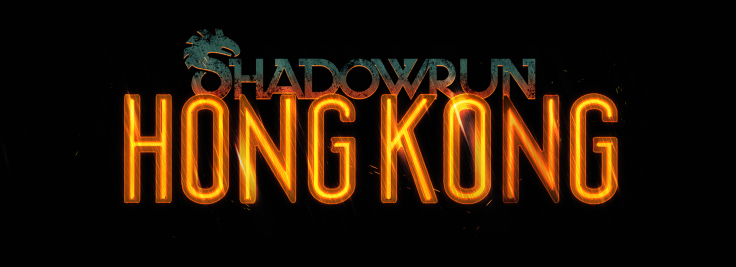If you don’t like Shadowrun, then this Shadowrun: Hong Kong review isn’t for you. Thanks for stopping by.
If you like Shadowrun, then this Shadowrun: Hong Kong review will confirm your hopes and assuage your fears.
If you haven’t tried Shadowrun, then this Shadowrun: Hong Kong review will, hopefully, convince you to take a run at the shadows, chummer, and see firsthand what 20+ years of lore and a passionate studio can do.
You should know that this is not a game for casual action fans. Sure, the veneer is a glossy melange of dystopic 80s nihilism , world cultures, classic racism and pulpy noir. There are rich fjords of lore for Harebrained Schemes' to draw from and so much setting and character motive comes steeped in lingo and sci-fi certitude. For gamers who love narrative, Shadowrun provides as good a canvas as any other franchise for action and adventure.
That action is turn-based, though, and the XCOM-style combat system is, for some, an automatic turn-off. If you can’t stomach the thought of gunfighters taking turns then you will be overwhelmed and under-entertained by Shadowrun: Hong Kong. It is a complex game and requires a complex attention span.
If you have the patience and the knack for strategic combat, as many Shadowrun fans do, then this game is as perfect an entry to the world of Shadowrun as any other. HBS’ previous installments, Shadowrun: Returns and Shadowrun: Dragonfall , are allllmost as good. But the best parts have been carried over and the slower, clunkier elements stripped away to streamline a familiar story.
Most notable is the improvement to decking, the in-game equivalent of computer hacking. A Simon-style number pad puzzle, as well as an encryption mini-game and non-combat stealth mechanics have been added to the cyberspace portion of Shadowrun: Hong Kong. Hacking computer systems and engaging in VR battles has been my favorite thing to do since this franchise was on the Sega Genesis , and Shadowrun: Hong Kong provides the best Matrix combat of them all. In short, hacking is no longer an exhausting repetition of take cover-fire-repeat. It feels different from standard combat, as it should.
What does not feel different, or different enough at least, is the story. Admittedly, I only managed to squeeze in 10 hours of gameplay in the 30-hour preview window I had access to. But so far, the story follows the same mysterious corporate intrigue/death of a loved one/hesitant team leader narrative as Dragonfall. Fortunately, several of the early runs (missions) I encountered had a lot of variety and a lot of surprises, so the action is superb. But afterwards, while going through a text-heavy dialogue with a surly orc who doesn’t trust me, I felt like I was replaying my interactions with Eiger at the outset of Dragonfall .
Again, I haven’t seen the story through to its conclusion and there are likely numerous surprises in store. Especially regarding the city of Hong Kong itself, which takes on an in-game persona in the form of Qi. Feng Shui gets the Sixth World magic treatment in Shadowrun: Hong Kong, and Qi becomes a tangible magical force in the city simply because enough people believed in it. This force is the centerpiece of a great many early runs, and a city-wide subplot is likely tied to the flow of negative Qi. Essentially, this new element provides the clearest opportunity for Shadowrun: Hong Kong to abandon the tropes established by its predecessors and go off in its own unique, wildly entertaining direction. Not to mention the new transition animations which add a much more satisfying sense of achievement once you uncover more of the story.
I should also mention that HBS is big on community content, so much so that a level editor is included with Shadowrun: Hong Kong. The same editor came with previous installments in the franchise and the community produced some tremendous and outstanding work . There are hundreds of user-created missions and levels and all-out campaigns that add a ludicrous amount of replay value. You can run through this game, set it aside for a month, and come back to find dozens of hours of new content. Run through those, wait a bit, and you’ll find even more to do.
The level editing fanatics will have a field day with the new assets in Shadowrun: Hong Kong. Although the perspective is isometric, the depth created by the set pieces more than makes up for a static camera angle. The game is gorgeous, and cyberpunk fans will find a lot to like in the neon signs and hissing pipes of Hong Kong’s busy backgrounds.
Shadowrun fans will find a lot to like about this game. It checks all the boxes for a robust Shadowrun experience. Anyone who enjoyed Dragonfall would be wise to double-down and purchase Shadowrun: Hong Kong. And anyone who didn’t and felt like they missed out can dive right in. It’s accessible, entertaining and priced just right.


















